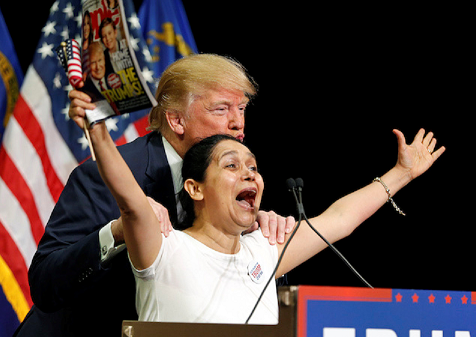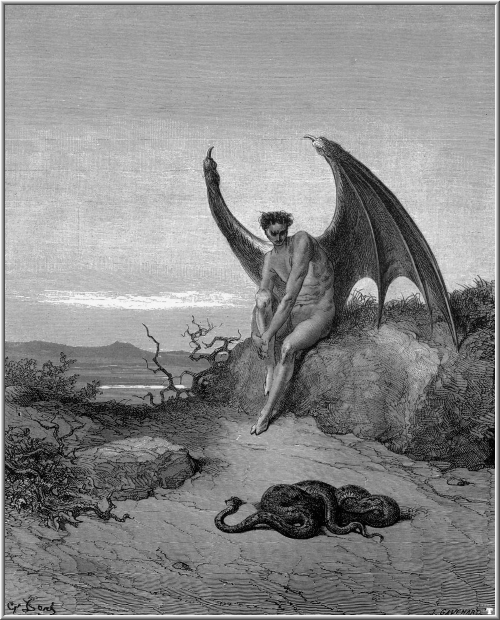I’ve told stories of my mountain home before, and also stories about the differences between racial feelings about blacks and whites in the South and in the North at the time of Martin Luther King.
We had two major coal towns living side by side along a creek that rose out of Black Mountain, running due west then feeding into the Poor Fork of the Cumberland River about five miles downstream All the mountains were coal bearing, but those two long spurs, called Benham Spur and Looney Ridge, running the length of that creek, was the Comstock Lode of metallurgical coal, used exclusively in the production of steel.
US Steel and International Harvester each built towns there, beginning around 1917, for the benefit of miners and their families.


They were company towns, well-built houses which mine families lived in free of charge, plus a large hotel for bachelors. Everyone had a job. A single railroad track ran the length of that creek, to haul the coal away on coal gondolas of the Louisville & Nashville Railroad. Through most of my childhood, well into my teens, I’d see out-of-work miners camped in out in the rail yard. They would hobo trains up the tracks, just to see if there was work here, any work, then sleep a couple of nights in that little camp, after going to certain houses to mooch food to put on the fire. Our house was one of those houses they could rely on not siccing dogs on them, or to call the peelers. Maybe even a hot meal in exchange for a little yard work. My mom always brought them in the back door, as they stunk to high heaven. I think they may have kept a map in a coffee can buried under a rock at that little camp, for every hobo who ever came through there knew which houses they could go to safely. The church wives. My mother was 5′ and 90 lbs but no woman ever feared those roughnecks because there was only one way into that town and only one way out. Some bank robbers found that out when I was in high school.
Both coal towns were noted for their fine schools, which was a big deal in coal country, as an education was the miners’ children only way out, they believed. My Benham school had a little over 200 students grades,1-thru-12, but a magnificent library that had been endowed by friends of Eleanor Roosevelt. I got my love of books there. One of our doctors was a Harvard man, who was enlisted to Appalachia by a talk Mrs Roosevelt gave in Boston in the 1930s. I cut their grass.
Lynch, which I began attending my sophomore year after county schools consolidated, was a much larger school, but no library to match Benham’s. All in all those two coal camps were bright lights of civilization in a dark jungle of backwardness in the easternmost corner of the Appalachian massif. Or so my dad said.
Our town was Protestant, we had only one Catholic family. But Lynch had a large population of east European Catholics: Polacks, Heinies, and Hunkies plus Italians.
Lynch also had the largest black population, by percent, in the state, only no one knew it until one of my black classmates from that single year we would spend together, would become a history professor and become the national authority on African Americans in Appalachia.
Both our towns had sizeable populations of black miners, all the more remarkable since there was no disparity in pay. Our blacks had bragging rights everywhere they went. So black miners and their families lived in the same quality company houses as did the white miners, only they were segregated, which was the practice of the day, but by no more than a gravel alleyway. An invisible line. And no curfew about being caught on the wrong side of that line after dusk, as some towns in those parts had prescribed.
They did have their own schools, and very fine ones, as I wrote about when visiting Miss Motley’s candy store. Those segregated days ended in 1963, my senior year.
All the adults were walking on egg-shells for the whole year, but it took less than a week or two for the students to meld. The only collective outrage was that they cancelled our senior trip to Washington, which I so looked forward to, since my sister had gone there in ’59 and decorated her room with the treasures she’d brought back. We couldn’t go, not because of Kentucky, mind you, but because Virginia still wouldn’t accommodate mixed groups on a bus, or, heaven forbid, eating at the same tables in restaurants and using the same toilets.
The blacks had several outstanding athletes, as you can imagine. And they helped carry us to another state championship in ’63. One of those, Benny, whose brother was one of the original Harlem Globetrotters, was starting left tackle, next to me at starting left end.
It was at our pep rally for the semi-finals of that championship run that our vice-principal interrupted, by walking to the microphone and saying, “The President has been shot.” I was sitting with the brain trust of the blacks’ senior class, three guys and a girl, and the girl, by name of Joanne, let out a small scream and began sobbing.
As I mentioned, one of the guys sitting there went onto to become a well known historian. Another, our second string quarterback, went on to work for Dr King and was part of the Civil Rights movement all his life.
We called him PeeGee. He was small and impish, and any mention of his name reminds me of the prank he played on the school’s Grim Reaper, Mrs Brophy.
Mrs Leona Brophy was our senior homeroom sponsor, as well as the principal English Lit teacher.
She was “divorced” and lived alone with her daughter, a class behind me, who was the reputed princess of backseat calisthenics at our drive-in theater. A very pretty girl, very flirty, I never dated her simply because I didn’t have a car. But every kid who did have a car and dated her, did.
The story was that Mrs Brophy’s husband had run away with another woman, leaving her to raise Millie alone, which may have explained a lot. But she was a pain in the ass in the classroom. All the girls especially hated her because of her crusade against exposed garters.
Say what? Yes, in those days, girls wore skirts to school. With hose. And before pantyhose, those hose were held up by garters. (Damnedest contraptions I ever saw.) Although it was a thrill for guys, and possibly why Mrs Brophy had such a campaign against them, but when girls crossed their legs at their desks, a little bit of skin and those garters flashed. Oh the humanity! Mrs Brophy was an absolute Brun Hilde about those garters, so much so that every girl in her classrooms had to sit at their desks, knees nailed together, for an entire hour, to ensure not even a peek of skin appeared underneath those skirts.
The girls hated her.
She also had this little peccadillo, if you ever questioned any of her textbook meanings, as in what Coleridge meant in a passage of “Rime of the Ancient Mariner”, and your counter-arguments were, well, arguable, when two or three more hands would go up, she would retreat to her life as a child, and the father (not a husband) who had abandoned her and her mother, leaving them to make their way alone. And then she would tear up, a hanky would come out, and we would sit there mute. muttering to ourselves “What’s this got to do with Coleridge?” but the bell would ring. I saw this performance at least four times over three years.
But our new black friends hadn’t seen Mrs Brophy’s Lady MacBeth performance. But they had heard of it. She clearly had not spent a lot of time with black teenagers, nor had she followed pop music. She couldn’t have picked Little Richard out of a line-up. In home room she tried to bond a little, by asking the black boys if they would do a song. She may have as well suggested they tap dance for the class. I’m not sure if she was looking for a Negro spiritual, but PeeGee, with a sheepish grin, said he had a happy little toe-tapper, and invited his brothers to sing along with the repeat chorus. (I’d heard this song in the back of the truck on the way to football practice, and knew what was coming.) He began:
“There was a girl, who had a fella”
and the class chimed in “There was a girl, who had a fella”
“She took him down into the cella”
Repeat
“She fed him wine, and whiskey too”
Repeat
By this time Mrs Brophy was walking back and forth, slowly clapping her hands in time to the music
“Then she gave him a ride on the Ring Dang Do”
She asked him to continue!… and by then the whole class was doing the chorus, and thankfully they were cleaner than other versions I had heard.
PeeGee finished as the bell rung and we all left, to muse on the lesson learned that day, namely, can you really “get” a person if they never know they were “got”? I was kind of hoping she’d sunga verse to daughter Millie. But I guess not.




